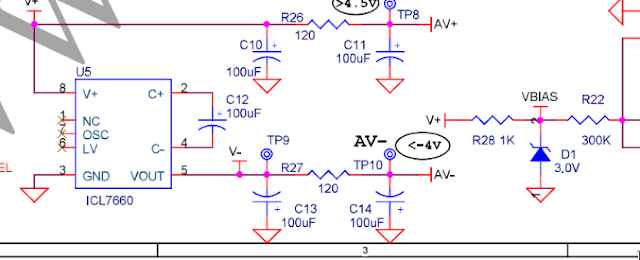DSO 150: Converting old analog board to new layout (part 1)

I have 2 DSO 150, one coming from the early models and one recent. The first models were sensitive to power supply voltage (calibration was changing depending on the power voltage) and to noise. This has been fixed on later revisions. The problems come mostly from the analog board power supply. There are some talks about it on the Jyetech forum Let's see what we can do. The old power suppy looks like this : So the input is sent to ICL7660 inverter and the output is used 'as is", without much filtering except the 2x100uf caps. More annoying VBIAS which is used to shift the input to the middle of the ADC range is also derived from the unfiltered power supply (V+) through a 3v Zener. That raises 2 issues : Not very immune to mid/high frequency noise, i.e. if you use a DC/DC converter for example. Noise will go to the OpAMP power rails AND to VBIAS. VBIAS is not a very good ref voltage. It will change a bit if V+ changes and if temperature changes.